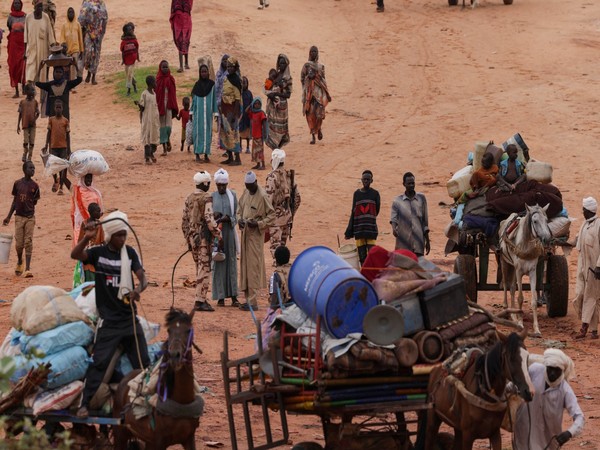

The United Nations has voiced grave concerns over the civil war in Sudan saying it is “spiralling out of control”, as more than a million people have left the country to neighbouring nations since April as fighting between two warring factions has turned the nation into a war zone, according to CNN.
According to a report issued by the International Organisation for Migration (IOM), the conflict in Sudan has caused the internal displacement of more than 3.4 million people. The Central African Republic, Egypt, Libya, South Sudan, Ethiopia, and Chad are among the nations in the region where refugees from Sudan have arrived.
In the middle of April, fierce fighting broke out between the Sudanese army and the paramilitary Rapid Support Forces (RSF), resulting in a large-scale exodus of refugees from the nation in East Africa, where allied militias have been charged with crimes against humanity after allegations of killing civilians, looting homes, and ethnic cleansing.
“Time is running out for farmers to plant the crops that will feed them and their neighbours. Medical supplies are scarce,” UN agencies said in a statement on Tuesday.
“The situation is spiralling out of control,” the report said.
“It is time for a reset. We call for an immediate cessation of hostilities. The people of Sudan need peace and equitable access to humanitarian relief. And the international community must step up today, engage at all levels, and act to put Sudan back on track and end the war,” the agencies added in the report.
Four months into the war, reported incidents of gender-based violence, including sexual assault, have surged by 50 per cent, according to the UN, piling pressure onto a healthcare system already depleted by insufficient aid, electricity shortages, and hospitals damaged by the fighting, CNN reported.
The regional director of the UN Population Fund (UNFPA) said the spike in gender-based violence amounts to war crimes and crimes against humanity.
“From our own statistics, many of the partners who work on gender-based violence providing services treatment and case management as well as counselling reported a 50 per cent increase in gender-based violence since the start of the conflict,” Laila Baker, the Regional Director for Arab States, UNFPA, said on Tuesday.
Some 260,000 women are now pregnant and almost 100,000 are expected to give birth in the next three months. But without critical services, including hospitals and safe delivery, “their lives and those of their children and the babies that are going to be the future generation are severely at risk,” Baker added.
The Office of the United Nations High Commissioner for Human Rights (OHCHR) received credible reports of some 32 incidents of sexual violence against 73 survivors by August 2, according to spokesperson Liz Throssell, CNN reported.
Men wearing RSF uniforms were implicated in at least 19 incidents as perpetrators, but “the actual number of cases is likely much higher,” she said.
“Perpetrators must be held accountable and such violence must be clearly and unequivocally condemned.”
In July, the UN said that as many as 4.2 million women and girls were now at increased risk of sexual violence due to the fighting.
A CNN investigation previously detailed widespread cases of sexual assault alleged by Sudanese activists, particularly in the Darfur region, where entire communities have been ravaged by reports of targeted ethnic-based killings, CNN reported.
Humanitarian bodies have warned that shaky ceasefires and inadequate evacuation corridors mean civilians are more likely to get caught up in the violence, prompting calls for a caretaker government.
As many as 3,900 people have died in Sudan since April, according to a July report from the Armed Conflict Location & Event Data Project (ACLED).
Pointing to a possible peaceful resolution of the conflict, Sudan’s Sovereign Council deputy chairman Malik Agar said the situation “necessitates us to form a government to run the wheel of the state.”
He outlined his idea for a path to a truce, which he said “starts with reaching a ceasefire agreement between the Sudanese army and Sudan’s Rapid Support Forces (RSF),” adding that dialogue between political parties could establish a transitional period and trigger elections.
“The war will eventually stop at the negotiating table,” he said.
The head of the Sudanese army Abdel Fattah al-Burhan and RSF chief General Mohamed Hamdan Dagalo worked together to topple former President Omar al-Bashir in 2019. The pair also played a key role in the 2021 military coup, CNN reported.
But their relationship broke down during discussions to integrate the RSF into the country’s military and restore civilian rule when questions were raised over who would lead under the new hierarchy.